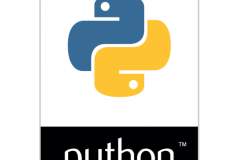In predictive modeling we are covering descriptive statistics to inferential statistics. We are taking through how to build the model, how forecast, how to do profiling etc. The entire course we divided into four module and after each module we are conducting test, giving some projects and also there is interview after each module is completed.
Topics Covered
All the techniques we will show it in Python Introduction to Statistics Descriptive Statistics Measure of central Tendency Measure of Dispersion Measure of Shape Sampling Methods Simple Random Sampling Systematic Random sampling Stratified Random sampling Cluster Random Sampling Non Random samplings: Quota, Judgment, Convince and Snow ball sampling Parametric tests One sample t test Independent of two sample tests ( t test & Z tests) Paired t test One Way ANOVA Two ways ANOVA Non parametric Tests Mann Whitney U test Kruskal Wallis Anova, Friedman Anova McNemar test Median test Predictive Modelling technique Simple Linear Regression (SLR) • OLS method • MLE • Assumption of OLS • Checking Assumption of SLR • Problem of Homoscatasity • Problem of Autocorrelation • Problem of Multicolinarity • Data Transformation Multiple Linear regressions Logistic Regression for Classification and Prediction Forecasting Technique ARIMA Modeling Exponential Smoothing Index Multivariate Techniques • Factor Analysis For Data Reduction • Principle Component Analysis • Cluster Analysis for Market segmentation • Discriminate Analysis for classification and Prediction • Multidimensional Scaling for Brand Positioning • Conjoint analysis for Product design • Canonical correlation
Who should attend
The candidates who want make career in Analytics.
Pre-requisites
Minimum Graduates required with basic computer knowledge
What you need to bring
Nothing
Key Takeaways
After completing course students have capability of choosing right statistics technique for right data and given problem










